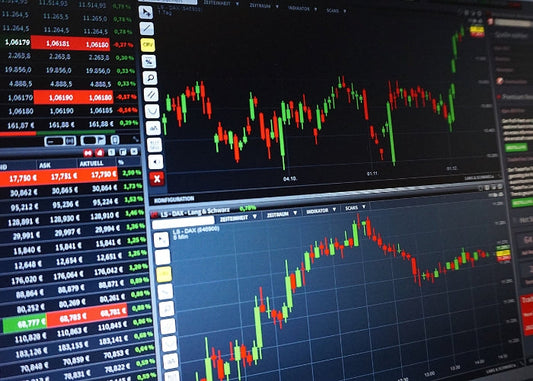Why stock indices diversify the portfolio

Stock indices provide investors with orientation. They give them a quick overview of how a region or an industry is performing. In addition, with exchange-traded index funds (ETFs), investors can easily invest in an entire index and thus spread their investment over many different stocks.
A stock index tracks the performance of a certain selection of specified shares of listed companies. The best-known index in Germany is the DAX, which tracks the performance of the 40 largest listed German companies. Other examples of well-known European stock indices are the EuroStoxx 50, which contains the 50 largest companies in the Eurozone, the FTSE 100, which consists of the 100 largest British companies, or the CAC 40, which represents the 40 largest French companies. Examples of country lead indices outside Europe are the S&P 500, which includes the 500 largest U.S. companies, the Nikkei 225, which is composed of 225 Japanese companies, and the MSCI World, which includes more than 1,600 companies from 23 industrialized countries worldwide.
An index is composed of several securities and represents the stock market of a specific country or a specific stock market segment. In addition to stock indices, there are also other indices that include commodities, bonds, and currencies, for example.
The calculation of indices
Indices are calculated according to certain criteria. For example, the DAX, which has been calculated by Deutsche Börse since 1988, only includes companies that are among the largest German companies in terms of market capitalization. Their free float must also be greater than 10 percent, i.e. not held by major shareholders.
There are basically two different ways of calculating an index. On the one hand, there is the price index, which only takes the prices of the shares into account. Other return factors such as dividends, interest, and other sources of income are not taken into account. On the other hand, there is the performance index (total return index), which takes into account not only the share prices but also other sources of return such as dividends. Thus, the DAX exists as both a price index and a performance index. The better-known variant of the DAX, which is widely used in the media, is the performance index.
In addition, there are different ways of taking the individual index values into account for indices. The most common method - as with the DAX, for example - is to weight the shares according to their market capitalization. The larger the market capitalization, the greater the weighting. An older method is to add up the prices of all the shares included in the index and then divide them by the number of index values. Examples of these are the U.S. Dow Jones index and the Nikkei 225. Another method is to weigh all the stocks contained in the index equally in percentage terms. In order for this weighting to remain constant over time, a regular reset to the original ratio is necessary.
An Index is therefore not just an index. Some of the stock market barometers are calculated quite differently. For investors, the weighting of the stocks they contain plays an important role.
What drives the stock indices
One stock market philosophy is that the future is traded on the stock market. This also applies to stock indices. They price the expectations of market participants for the future. But what do expectations depend on? Important factors include:
Economic news
Central bank announcements, unemployment figures, and economic and political events can drive prices up or down
Business reports
the performance of stocks also depends on the success or failure of the respective companies. The annual reports of the companies show how much profit or loss is generated. Also crucial to the share price is whether a company exceeds market expectations, which could give the stock a boost, or expectations could not be met, which could cause share prices to fall
Corporate news
Changes within the company's management, such as the unexpected departure of the CEO, can affect the share price. This also applies to other, as yet unknown, events such as acquisitions and mergers with other companies.
Commodity prices
Various commodities affect the prices of the indices. For example, some of the stocks listed in the FTSE 100 are commodity stocks. Accordingly, fluctuations in the commodity market can affect the index price.
The performance of stock indices depends on economic, political, and, not least, business developments of the companies included in the indices.
Diversification
Whether the value of a stock index rises or falls does not usually depend on a single share. Therefore, it is advantageous for investors to spread the risks over different shoulders, i.e. share values, by investing in the entire index. But here, too, investors should take a closer look at the relevant indices they find interesting. This applies in particular to the weighting of the stocks included in the index. If, for example, a stock or a few stocks are weighted particularly heavily, because of their large market capitalization, these price fluctuations can have a significant impact on the entire index value. If, on the other hand, all index stocks are equally weighted, this risk of a uniform price movement of all or most stocks in the index is avoided. This risk is also referred to as cluster risk. Therefore, it is obvious to look at the factsheets via the index providers, on which the current weightings are documented.
Conclusion
- Stock indices serve as stock market barometers against which the developments of corresponding markets, such as countries and industries, can be read.
- Investors can easily implement their market expectations with financial instruments such as ETFs, spreading the risks over many stocks.
No comments
Home
Trive
TriveHub




0 comments